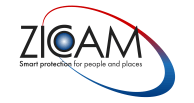Securing Your Assets – Assessing the Impact of Access Control on Your Business
In the intricate dance of modern business operations, the security of physical and digital assets plays a central role in ensuring long-term success and stability. Amidst this landscape, access control systems emerge not just as gatekeepers but as strategic tools that shape an organisation’s overall safety and efficiency. This article explores the multifaceted impact of access control on businesses, guiding leaders to make informed decisions that safeguard their operations without sacrificing operational fluidity.
The Importance of Access Control in Modern Business Environments
The digital transformation, coupled with the increasing sophistication of threats, has catapulted access control from a mere security measure to a critical component of business infrastructure. In an era where data breaches and physical security threats linger ominously, controlling who enters your premises or accesses specific data can be the difference between thriving and catastrophic failure.
Exploring Various Types of Access Control Systems
Access control systems fall into several categories, each with its functionalities and applicability:
- Discretionary Access Control (DAC) allows business owners to decide who can access specific resources, offering flexibility but requiring meticulous management to avoid security gaps.
- Mandatory Access Control (MAC) is often used in high-security environments, where access is regulated based on classifications and security clearances.
- Role-Based Access Control (RBAC), perhaps the most relevant for businesses, regulates access based on roles within the organisation, streamlining management and minimising unnecessary access.
Emerging technologies have also introduced biometric systems, smart cards, and mobile-based access control, offering enhanced security and convenience.
Considerations for Selecting the Right Access Control System
Choosing an access control system demands a careful evaluation of several factors:
- Business Size and Complexity: Larger, more complex organisations may benefit from more sophisticated systems like RBAC or MAC, whereas smaller businesses might find DAC systems adequate.
- Regulatory Compliance: Ensure the system supports compliance with relevant laws and industry standards.
- Integration Capabilities: Integrating existing security and IT systems is crucial for streamlined operations.
- Future Scalability: The system should be able to grow and adapt to your business.
Benefits of Access Control Beyond Security
While security remains a primary driver, access control systems offer several additional benefits:
- Data Protection: Safeguarding sensitive information from both external and internal threats.
- Employee Safety: Restricting access to hazardous areas or equipment to trained personnel.
- Operational Efficiency: Minimising administrative work and enhancing the flow of movement within premises.
- Audit Trails: Providing valuable insights into access patterns and potential vulnerabilities.
Future Trends in Access Control Technology
The future of access control lies in integrating AI, machine learning, and IoT devices, offering predictive analytics for more proactive security measures. Cloud-based systems make access control more flexible and scalable, while mobile credentials provide a more user-friendly approach without compromising security.
Contact Us
Here at Zicam, we are dedicated to helping our customers stay safe in their businesses. If you are looking for specialist business security systems, do not hesitate to contact us via our contact form or by phone at 08000854711.
Subscribe here to keep up to date with Zicam’s news and views.

